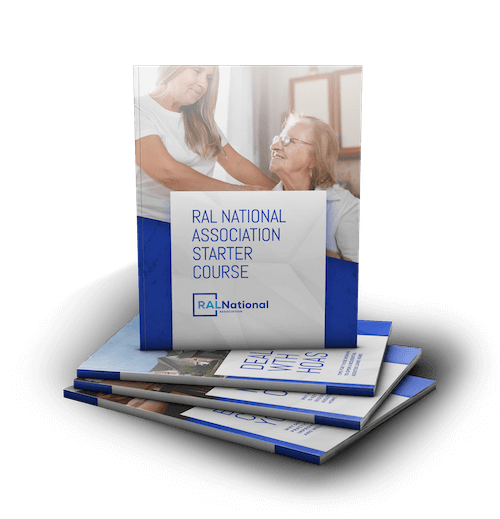[vc_row css_animation=”” row_type=”row” use_row_as_full_screen_section=”no” type=”full_width” angled_section=”no” text_align=”left” background_image_as_pattern=”without_pattern”][vc_column][/vc_column][/vc_row][vc_row css_animation=”” row_type=”row” use_row_as_full_screen_section=”no” type=”full_width” angled_section=”no” text_align=”left” background_image_as_pattern=”without_pattern”][vc_column][vc_empty_space][vc_column_text]
In order to be the most effective in taking care of others, you need to take care of yourself.
[/vc_column_text][vc_empty_space height=”16px”][vc_column_text]The most effective caregivers understand and exercise self-care, which allows them to avoid depression. Depression is more than feeling sad, unhappy or moody, these are emotions most people periodically experience for short seasons. When feelings of anger, frustration, loss, or sadness intrusively interfere with daily life for extended periods, a physician’s supervision is usually required.[/vc_column_text][vc_empty_space height=”16px”][vc_column_text]These long-term and repeated episodes are called major depression. When residential assisted living caregivers suffer from major depression, they typically experience a combination of various symptoms. Do you know how to recognize symptoms and how they can be addressed before they lead to negative outcomes?[/vc_column_text][vc_empty_space height=”16px”][vc_column_text]
Caregivers Experiencing Major Depression Wrestle with Two of the Following Symptoms for at Least Two Weeks:
[/vc_column_text][vc_empty_space height=”16px”][vc_column_text]
- Loss of interest or pleasure in most daily activities,
- Depressed mood,
- Change in appetite resulting in weight loss or gain,
- Difficulty sleeping,
- Trouble sleeping,
- Excessive Sleeping,
- Feeling fatigued and a lack of energy,
- Feelings of hopelessness and helplessness,
- Feelings of worthlessness, self-hate, and inappropriate guilt,
- Low self-esteem,
- Sudden outbreaks of anger,
- Difficulty in thinking, concentrating or making decisions, and
- Recurring thoughts of death or suicide.
[/vc_column_text][vc_empty_space height=”16px”][vc_column_text]Major depression is not substance-induced, schizoaffective, or feelings of loss brought about by the death of a loved one. Ultimately, there are 5 primary depression types that caregivers should be especially aware of. These variations of mental illness are generally ranked in terms of severity, from mild, moderate, or severe. The degree of depression determines the diagnosis and treatment plan.[/vc_column_text][vc_empty_space height=”16px”][vc_column_text]
Five Primary Types of Depression
[/vc_column_text][vc_empty_space height=”16px”][vc_column_text]
- Major Depression
- Minor Depression
- Dysthymia
- Atypical Depression
- Bipolar Disorder
[/vc_column_text][vc_empty_space height=”16px”][vc_column_text]It is important for caregivers to avoid self-diagnosing and get help. More importantly, residential assisted living workers should implement self-care strategies to avoid common causes of depression.[/vc_column_text][vc_empty_space height=”16px”][vc_column_text]
COMMON CAUSES OF DEPRESSION
[/vc_column_text][vc_empty_space height=”16px”][vc_column_text]A combination of genes interacting with your environment produces depressive changes. This is called a nature-nurture phenomenon. Although family caregiving can be difficult, depression does not spiral from working on residential assisted living homes.[/vc_column_text][vc_empty_space height=”16px”][vc_column_text]When caregivers become depressed, it is likely that you have a genetic vulnerability or predisposition to developing depression. In some cases, this predisposed innate tendency to become depressed, combined with the stress associated with an elder care environment, can result in the development of major depression. Even with a genetic predisposition, unhappiness and stress are key triggers for depressive episodes. [/vc_column_text][vc_empty_space height=”16px”][vc_column_text]
Environmental Triggers the Cause Depression for Caregivers
[/vc_column_text][vc_empty_space height=”16px”][vc_column_text]
- Providing 36 or more hours of weekly care,
- Caring for spouses,
- Caring for a parent,
- Tending a loved one with disruptive behavior,
- Dealing with personality changes,
- Coping with conflicts amongst the healthcare team, and
- Lacking available social and emotional support.
[/vc_column_text][vc_empty_space height=”16px”][vc_column_text]Residential assisted living managers must look out for mental health signs and symptoms amongst caregivers.[/vc_column_text][vc_empty_space height=”16px”][vc_column_text]
RALNA RESOURCES HELP SENIOR HOMES ACHIEVE SUCCESS
[/vc_column_text][vc_empty_space height=”16px”][vc_column_text]The Residential Assisted Living National Association (RALNA), is a membership-based organization providing resources and support to the residential assisted living industry. Membership grants access to group purchasing power, discounts with over 200 RAL vendors, legal advocacy, industry marketing, educational services, memory care training, certifications, marketing and relevant newsletters. Joining www.RALNA.com allows owners and caregivers to gain valuable need-to-know hot topics and pro-tips to highlight trending data.[/vc_column_text][vc_empty_space height=”24px”][vc_column_text]Do you know how to recognize symptoms and how they can be addressed before they lead to negative outcomes?[/vc_column_text][vc_empty_space][vc_separator css_animation=”fadeIn” type=”normal” color=”#eaeaea”][vc_empty_space][vc_row_inner row_type=”row” type=”full_width” text_align=”left” css_animation=””][vc_column_inner width=”1/6″][/vc_column_inner][vc_column_inner width=”2/3″][vc_single_image image=”99″ img_size=”medium” alignment=”center” qode_css_animation=””][vc_empty_space height=”10px”][vc_column_text]
If you found the information on this article valuable, you’ll find enormous benefits by becoming a member of our community. Visit this page to become a RALNA Member.
[/vc_column_text][/vc_column_inner][vc_column_inner width=”1/6″][/vc_column_inner][/vc_row_inner][vc_empty_space][/vc_column][/vc_row]











